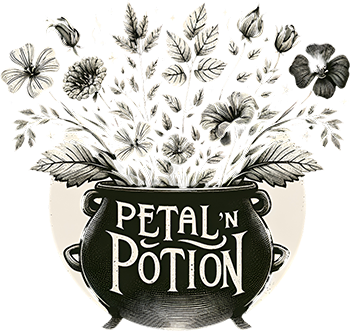H o l y B a s i l
Holy Basil (Ocimum sanctum), also known as Tulsi, is a revered herb in Ayurvedic medicine.
Native to India, it is considered an adaptogen that helps the body cope with stress and promotes overall well-being.
Benefits
- Stress Reduction: Acts as an adaptogen, helping the body manage and adapt to stress.
- Enhances Mental Performance: Improves cognitive function, focus, and memory.
- Combats Fatigue: Boosts energy levels and reduces symptoms of fatigue.
- Improves Sleep Quality: Promotes restful sleep and helps treat insomnia.
- Mood Improvement: Alleviates symptoms of depression and anxiety.
- Supports Heart Health: Helps reduce cholesterol levels and improve cardiovascular health.
- Boosts Immune System: Enhances immune function and helps the body fight off infections.
- Anti-Inflammatory: Reduces inflammation and benefits conditions like arthritis and other inflammatory diseases.
- Antioxidant Properties: Provides antioxidants that protect cells from oxidative stress and damage.
- Supports Respiratory Health: Helps relieve symptoms of respiratory conditions such as asthma, bronchitis, and colds.
- Blood Sugar Regulation: May help regulate blood sugar levels and support diabetes management.
- Skin and Hair Health: Beneficial for skin conditions including acne and enhances hair health.
Active Compounds
- Eugenol: The primary active compound responsible for holy basil’s anti-inflammatory and antimicrobial properties.
- Rosmarinic Acid: Provides antioxidant protection and supports overall health.
- Ursolic Acid: Contributes to the plant’s therapeutic effects, including anti-inflammatory and anticancer properties.
- Apigenin: Known for its anti-inflammatory, antioxidant, and neuroprotective effects.
- Luteolin: Offers additional antioxidant and anti-inflammatory benefits.
- Beta-Caryophyllene: Enhances the plant’s therapeutic effects, particularly its anti-inflammatory properties.
Who Should Avoid This
- Individuals with Allergies: Those allergic to Holy Basil or related plants should avoid it.
- Pregnant and Nursing Women: Consult a healthcare provider before use, especially in large amounts.
- Individuals with Blood Disorders: Use caution due to potential blood-thinning effects.
- Individuals with Diabetes: Monitor blood sugar levels closely, as Holy Basil may lower blood sugar.
- Individuals on Medication: Particularly those taking anticoagulants, antidiabetics, or thyroid medications should consult a healthcare provider to avoid interactions.
- Children: Consult a healthcare provider before giving Holy Basil to young children.
Warnings
While Holy Basil offers numerous health benefits, some precautions and potential side effects should be considered:
- Gastrointestinal Issues: High doses may cause stomach upset, nausea, or diarrhea.
- Pregnancy and Breastfeeding: Consult a healthcare provider before use, as it may not be safe in high doses.
- Blood Thinning: May have blood-thinning effects; use caution if you are taking anticoagulant medications.
- Hypoglycemia: May lower blood sugar levels; use caution if you have diabetes or are on medication to control blood sugar.
- Interactions with Medications: May interact with certain medications, including anticoagulants, antidiabetics, and thyroid medications.
Usage Guidelines
Holy Basil can be used both short-term and long-term, depending on the condition being treated. For acute issues such as stress relief or improved sleep, it is typically used until symptoms improve. For ongoing benefits such as cognitive enhancement, immune support, or general wellness, longer-term use may be appropriate but always under the guidance of a healthcare professional. Always consult with a healthcare provider to determine the correct dosage and duration for your specific needs.
